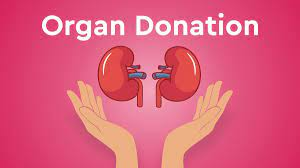More Women Are Living Donors: You must have heard many times in the news that the daughter saved her father's life by donating her kidney, such news may be selective, but the picture is quite big. When data on organ donation was collected between 1995 and 2021, it was found that the number of girls among living donors is more than boys. According to this data, 4 out of 5 living donors are female, however, the figure of organ recipients is exactly the opposite. During this period, 36,640 organ transplants took place of which 29,000 men received organs and 6,945 women.

Why are there more women among living donors?
It is generally believed that women are more emotionally attached to their families, hence they do not hesitate to organ donation, but many social experts believe that women have more pressure from society and family, and most men have financial responsibilities. It is more so that they receive more organs and donate less because they do not want to undergo surgery considering the risk to life. However, among cadaver donors i.e. dead donors, the number of men is more than women.
Big gender difference in organ donation
NOTTO Director Dr. Anil Kumar told the Times of India that more men are deceased donors, but more women are living donors. He said, '93% of the total organ donations in the country were living donors. It is a statement in itself that many organ donors in the country are women.
In a paper published in the Experimental and Clinical Transplantation Journal in the year 2021, a huge gender difference was found in the country in the case of living organ transplantation. This data analyzed organ transplants in 2019 and found that 80% of living organ donors are women, typically wives or mothers, while 80% of organ receivers are men.
The organ transplant coordinator said this

Mayuri Barve, the organ transplant coordinator of DY Patil Medical College, Hospital and Research Center in Pune, told Times of India that she has been working in this field for the last 15 years, only once has her husband Come forward to donate his organ to his wife. , He said, wives, mothers, and even fathers also donate.
Mayuri Barve said that mothers and fathers happily donate organs for their children. When both are not present the wife comes forward. Often, if the daughter is unmarried, she becomes a donor. However, if the wife needs an organ, she will most likely be put on a waiting list.
Mayuri Barve said, 'If the receiver is a man and he is a money earner, then the wife or parents feel responsible for donating the organ. Women who receive organs feel guilty if their family members have to donate their organs. Financial responsibilities on male members and cultural upbringing in which a woman is taught to take care of her family are the reasons why more women donate while more men are likely to be organ receivers.'
Photo Credits: Google










